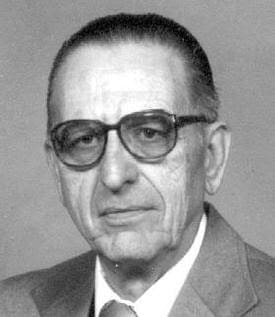Originally published Feb. 1, 2006
Difficult winter weather came to Carthage in February of 1900 after a summer-like January opened the new 20th Century, providing a deceptive taste of shirtsleeve conditions but doing nothing about weather’s ultimate discomfort except to postpone it a few weeks.
The lively January allowed opportunity for outdoor activity in relative comfort for the January ceremonies marching the establishment of a new Elks Lodge in a festive setting at the Burlingame and Chase Opera House on the south side of the square, where early sessions of the lodge were held.
The members of the Joplin Elks Lodge, nearly 100 strong, came at the noon hour by train and were met at the Frisco depot by most members of the new lodge. That was January 4th, 1900. “They made an imposing sight as they marched up town to the music of the band and with the Elks’ colors of purple and white in much evidence,” said The Press that afternoon. “A genuine goat which new members are supposed to take turns in riding headed the procession, blanketed in the lodge colors. It was led by a man who also was gorgeously attired in purple and white and carried an umbrella of the same materials.”
Most of the new city’s business leaders were among the 64 members initiated that night.
The lodge eventually purchased property on 6th Street between Main and Grant, where they eventually erected a commodious edifice that was to outlast the lodge and serve the community as a USO canteen during World War II and later as a busy Civic Center, a community meeting place.
Runaway teams were frequent headline makers as the new century advanced. Sometimes the results were spectacular. An example is from The Press of January 5th, 1900:
“There was a lively runaway this morning near the east end of Central Avenue. A wood hauler had delivered his wood and started home but stopped at the last grocery store to make some purchase or to talk to someone, leaving his team standing in the street. Just than an old lady in a buggy drove by with a coop full of chickens under the seat but the coop was not tight and with a loud sqawk one of the fowls made a break for liberty and flew right over the wood hauler’s wagon. It was too much for the horses and with a snort of fright they started for home. The spring seat, end gate and various parcels flew out as the vehicle bounced over the railroad crossing and a sack of flour in the bottom of the wagon burst open and left a trail of white along the road.”
“The team was soon lost to sight and the farmer trudged sadly down the road after them, shaking his head and muttering to himself that it was a good 12 miles and he certainly would have to walk all the way but was not likely to miss the road, with that trail of flour to guide him.”
“The old lady who lost her chicken made a much loader complaint than the man who lost his wagon and team and when last seen she was trying to persuade the grocery man to pay her full price for the bird and risk catching it.”
There were periodic traffic fins collected from owners of rebellious horses and bicycle riders. The spring-like weather may have sparked the problem. Said The Press of January 15, “Although we are in the midst of winter the weather yesterday and today has been very summer-like with bright sunshine and the thermometer at 70 degrees, inspiring a group of young girls to perform and impromptu cakewalk on the courthouse walkway.”
There was an abrupt change the following day, when Harry Waters tried his hand at skating on the ice-covered brickyard pond, where he broke through the thin ice and into three feet of freezing water.
















